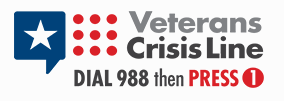At the Berry Law, we understand the value that Veterans bring to businesses. Our legal team is filled with Veterans and our focus is serving Veterans. One of the biggest challenges that Veterans face when they are discharged from the military and transitioning to civilian life is finding a job. Hiring a Veteran is a patriotic act and a good business practice. Veterans bring value to organizations. They have a strong work ethic and are results-oriented. They are creative problem solvers. They perform well under pressure. They are natural leaders and they are laser-focused on the mission. Many Veterans have technical skills as computer systems managers, software developers, and cybersecurity analysts that are applicable to civilian jobs.
Approximately 180,000 Veterans make the transition to civilian life each year, according to the U.S. Department of Labor. Businesses should recognize the value that Veterans bring to the organization. Employers that hire an unemployed Veteran may receive the Returning Heroes tax credit. Businesses that hire a Veteran with a service-connected disability within a year of their discharge can receive a Wounded Warrior tax credit of up to $9,600. Hiring a Vet is the right thing to do. Learn more in the infographic below.
